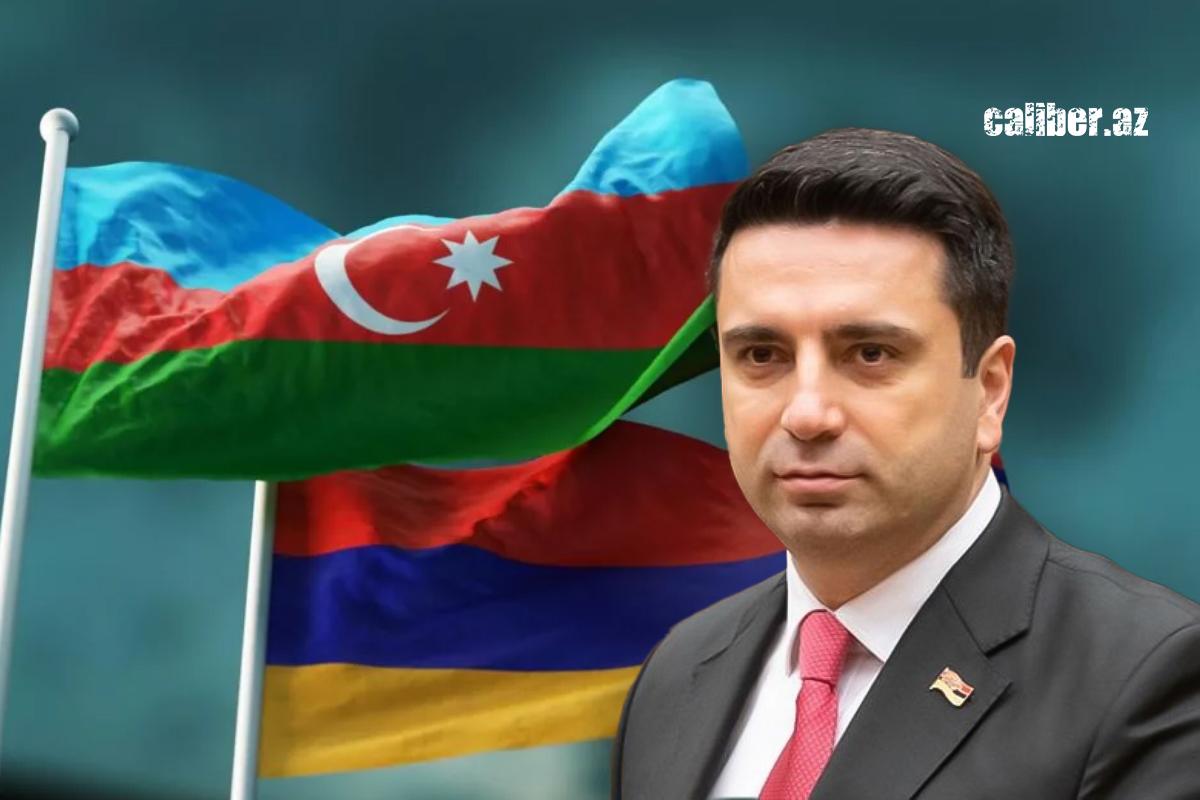Armenian parliament speaker pushes to dissolve “Karabakh commission” Is peace within reach?
Armenian Parliament Speaker Alen Simonyan has called for the dissolution of the “Armenia-Nagorno-Karabakh” Inter-Parliamentary Commission, arguing that it is redundant given the current circumstances. He contends that there are no legitimate “Nagorno-Karabakh officials” or even a recognized "president of Nagorno-Karabakh”. As a legal expert, Simonyan advocates for a thorough discussion on disbanding this commission.
The swiftness through which these realities are acknowledged is striking. Notably, no country has ever recognized the existence of “Nagorno-Karabakh” during Armenia's occupation of 20 per cent of Azerbaijan's territory. Furthermore, following the 44-day war, Armenian Prime Minister Nikol Pashinyan repeatedly affirmed Azerbaijan's territorial integrity, which encompasses the Karabakh region and its enclaves.
A pressing question arises: why does the “Armenia-Nagorno-Karabakh” Inter-Parliamentary Commission still exist? What prevented its dissolution immediately after the conclusion of the 44-day war? The answer is clear: at that time, official Yerevan was intent on retaining control over portions of Azerbaijan’s temporarily occupied territories.
This same intention was evident in Armenia’s continued financing and arming of the Karabakh junta. Consequently, Azerbaijan was compelled to undertake an anti-terrorist operation last September. In this operation, the last leader of the Karabakh junta, Samvel Shahramanyan, along with several of his associates, managed to flee to Armenia. Conversely, former leaders of the Karabakh junta were less fortunate; they have been captured and are currently in Baku, awaiting a just trial.
According to the Azerbaijani Prosecutor General 's Office, criminal cases have been initiated against 15 Karabakh separatists, who have been placed on an international wanted list. This list includes Arkady Ghukasyan, Bako Sahakyan, Araik Harutyunyan, David Babayan, David Ishkhanyan, Leva Mnatsakanyan, David Manukyan, Ruben Vardanyan, among others. They face charges of terrorism, financing terrorism, establishing illegal armed groups, and conducting training for terrorism.
This June, the investigations into their cases had been completed. Notably, Alen Simonyan has indicated that the issue of Armenians detained in Azerbaijan is not addressed in the draft peace treaty between Yerevan and Baku.

The foreign “defence lawyers” representing the former Karabakh leaders have, in many cases, proven to be misguided. Particularly discrediting is former International Criminal Court Prosecutor, Luis Moreno-Ocampo, who vocally demanded their release. His actions underscore his own venality and hypocrisy.
However, the list of individuals who could face similar charges is extensive, including politicians and journalists from the United States, France, Russia, and other nations. Following Simonyan's statement, these individuals seem to be moving about as if untouched by the controversy. Nevertheless, given their “principles,” it is likely they will persist in disseminating anti-Azerbaijani rhetoric.
Regarding the prospects for a peace agreement between Baku and Yerevan, Armenian Foreign Minister Ararat Mirzoyan has addressed the matter. At a joint press conference with Xavier Bettel, Vice Prime Minister, and Minister for Foreign Affairs and Foreign Trade, Minister for Development Cooperation and Humanitarian Affairs of the Government of Luxembourg, Mirzoyan stated that Armenia and Azerbaijan have a genuine opportunity to finalize a peace agreement soon.
According to Mirzoyan, Yerevan and Baku have fully agreed on 13 out of 16 articles of the proposed treaty, with partial agreements on the remaining three.
Armenia has presented its tenth package of proposals to Azerbaijan. We can only hope that Yerevan will recognize the legitimacy of Azerbaijan's demands to amend the Armenian constitution, which currently includes territorial claims against Azerbaijan.
Azerbaijan has taken significant steps to expedite the signing of a peace agreement with Armenia. Notably, Elchin Amirbayov, the Azerbaijani President’s Special Representative, previously announced that Baku has decided to set aside the issue of the Zangazur corridor, which would have connected mainland Azerbaijan with Nakhchivan through Armenian territory.
“On mutual agreement, we decided to take this paragraph out of the peace agreement and to refer it to a later stage. We do not wish to complicate the negotiations on the document, so we opted to remove it from the text. However, we may still include a provision indicating that the countries could revisit this issue in the future,” Amirbayov noted.
This move represents a genuine step towards peace on our part. We can only hope that the current Armenian leadership will demonstrate the courage and wisdom necessary to address and remove the remaining obstacles to finalizing a peace agreement with Azerbaijan. Although the process is advancing slowly and with difficulty, it is progressing in the right direction.








